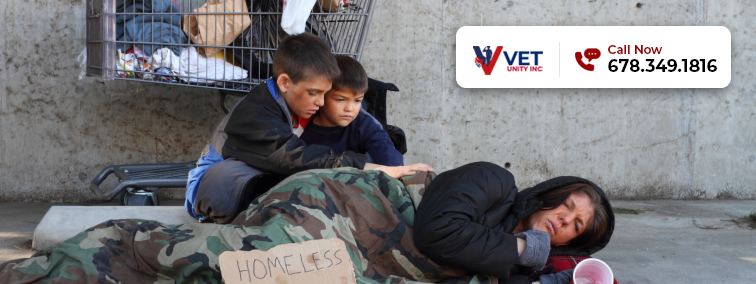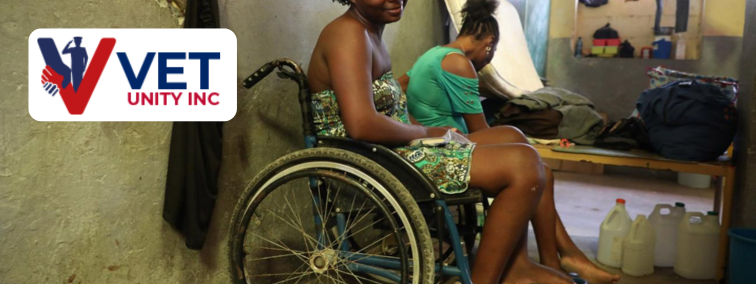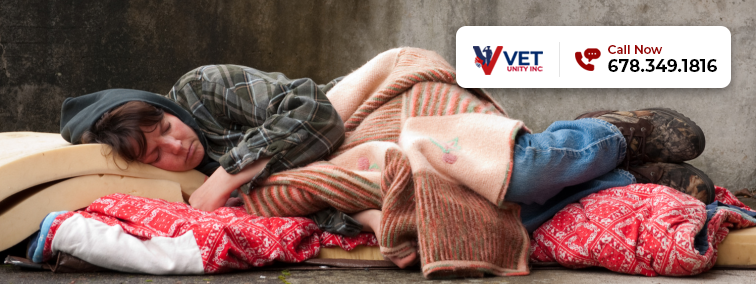Empowering Homeless Veterans: The Impact of Flexible Assistance Programs
Homelessness among veterans is a critical problem in the United States. When they come home, these brave men and women served our nation. They often face many obstacles. These hurdles may lead to unstable housing and even homelessness. It is becoming clearer that flexible assistance programs are a potent tool. They can empower homeless veterans and aid them in rebuilding their lives. In this article, we will discuss the impact of flexible assistance programs. They empower homeless veterans.
Understanding the Scope of Homeless Veterans
The problem of homelessness is complex. Veterans face a special set of issues. In the United States, on a single night in January 2023, the Department of Housing and Urban Development (HUD) reported that 37,258 veterans were homeless. These veterans may struggle to find stable housing and work. It is because they may battle with mental health concerns. They may also have PTSD, physical limits, or no job training.
Challenges Faced by Homeless Veterans
It may be difficult for veterans to find themselves without a place to live. A number of factors might contribute. These include mental health problems, PTSD, drug addiction, and trouble finding work again. Also, typical support programs may not always be flexible enough. They may not fit the needs of each veteran.
Traditional Assistance Programs: Strengths and Limitations
Homeless veterans may get helpful support from a variety of conventional aid programs. These initiatives could provide temporary housing. They could also provide help with food and access to mental health care. On the other hand, they tend to be unyielding in their approach. For example, to get housing aid, a veteran might need to do all the steps in order before the program helps. Veterans have complex needs. The inflexibility might make hurdles for them.
The Power of Flexibility
Flexible assistance for homeless veterans don't use a cookie-cutter approach. They use a more specific strategy. These programs note the varied needs of homeless veterans. They provide a more personal route to rehabilitation. As follows, how:
1. Tailored Support:
Tailored programs help each veteran. They evaluate the veteran's specific circumstances and provide fitting assistance. Counseling for mental health is one example. Support in getting identity papers is another. So is career training. These are examples of what may fall into this category.
2. Financial Aid Options:
Flexible programs could provide candidates with more financial aid choices. Compared to standard programs, they offer greater access to aid. For example, it might include financial aid for daycare. It could also include help with transportation costs or rent.
3. Housing Choice:
It's possible that veterans will not be limited to some housing options. It will be via flexible programs. Veterans have options. They can choose shelters, transitional homes, or supportive housing. Their choice depends on their needs and desired comfort.
Impact of Flexible Assistance Programs
Many relevant studies have shown that flexible aid programs are useful. They help empower homeless veterans. Key advantages include the following:
- Increased Housing Stability: Veterans may take a big step in rebuilding their life. They can do this by getting stable housing with the help of flexible programs.
- Improved Health Outcomes: We can greatly improve veterans' health and well-being. We can do this by giving them access to mental health services and treatment for drug misuse.
- Increased Employment Rates: Veterans can re-enter the workforce with the help of programs. These programs provide job training and other employment support. It helps leads to financial independence.
- Reduced Reliance on Public Assistance: We can help veterans become self-sufficient and rely less on public assistance. We can do this by using adaptable programs. These programs address the root causes of homelessness.
Examples of Flexible Assistance Programs
Several aid initiatives are effective and adaptable. They are making a difference in the lives of homeless veterans. They include the following: Veterans Affairs Supportive Housing (VASH): It is a collaboration initiative. It is between the Department of Housing and Urban Development and the Department of Veterans Affairs. It offers vouchers for housing help to disabled veterans. Grant and Per Diem (GPD) Programs: VA programs provide homeless veterans with money for housing and services. They get this help throughout their time of need. Stand Down Events: The events are based in the community. They provide homeless veterans with many services. These include housing, healthcare, and help in finding jobs.
The Road Ahead: Expanding Flexible Assistance
We still need to expand flexible assistance programs. It is true, even though they are having a good effect. It is what steps may be taken including: Increased Funding Community Collaboration Raising Awareness
Taking Action
You may take the following steps if you are interested in helping homeless veterans: Give money to organizations. They offer veterans many accessible help services. Volunteer your time to an organization that provides services to veterans. Promote the idea of giving more money. It would go to a homeless veterans support program. Raising awareness about the problem of homeless veterans is important. We must also share the benefits of flexible help programs. We can work together. We can give homeless veterans the tools they need to rebuild. We can also make sure they have the services they need.
Concluded Thoughts
Homeless veterans are deserving of our assistance. Flexible aid programs are viable. They can empower these brave people. They can help them get stable homes, better health, and a brighter future. We can have a big impact on homeless veterans. We can do this by extending these programs and getting the community to help.




